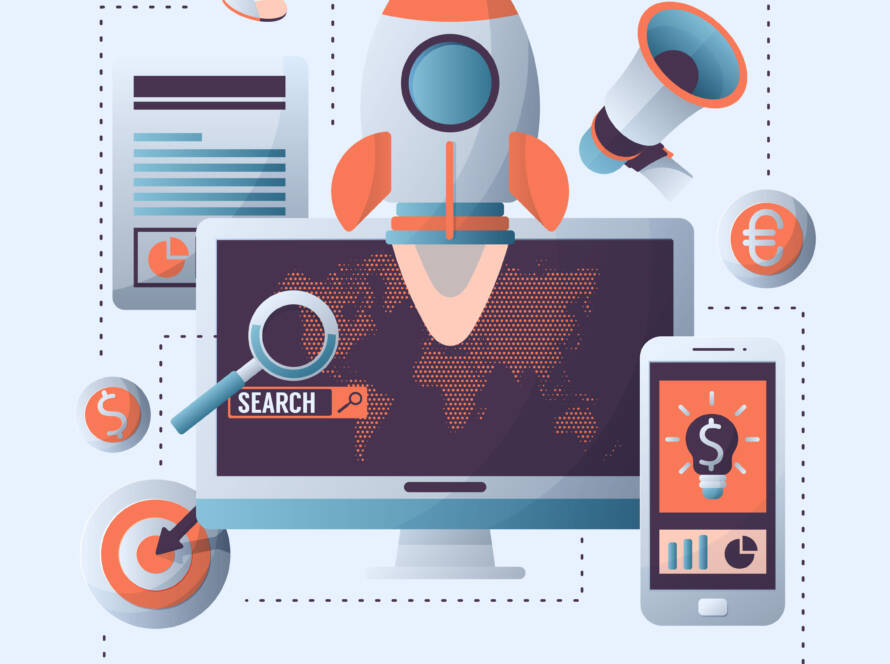Personalization has become an essential element in digital marketing campaigns, and its importance cannot be overstated. In a world where consumers are bombarded with a constant stream of content, the ability to stand out and connect with an audience on a personal level is invaluable. Below are the key reasons why personalization is so critical in today’s digital marketing landscape:
Enhanced Customer Experience
One of the primary benefits of personalized marketing is the enhanced customer experience it provides. In a market saturated with generic messages, personalized content allows brands to cater to individual preferences, interests, and behaviors. This level of customization helps brands create more relevant and timely interactions with their audience, resulting in a more meaningful and enjoyable customer experience.
When customers feel understood and valued, their overall satisfaction with the brand increases. This satisfaction often translates into loyalty, with customers more likely to return to a brand that consistently meets their needs and expectations. In essence, personalization makes the customer feel like the brand is speaking directly to them, which is a powerful tool in building long-term relationships.
Improved Engagement and Conversion Rates
Personalized marketing is not just about making customers feel good; it also has a tangible impact on engagement and conversion rates. When marketing messages are tailored to an individual’s specific needs or interests, they are more likely to capture the customer’s attention and encourage interaction. This increased engagement can lead to higher click-through rates, more time spent on a website, and ultimately, more conversions.
For instance, an email campaign that includes personalized product recommendations based on a customer’s past purchases is far more likely to result in a sale than a generic promotional email. The customer is more inclined to engage with content that feels relevant to them, which significantly increases the chances of them taking the desired action, whether it be making a purchase, signing up for a service, or sharing content with others.
Increased Customer Retention
In a competitive marketplace, retaining customers is just as important as acquiring new ones. Personalized communication plays a critical role in fostering stronger relationships between brands and their customers, which can lead to higher retention rates. By consistently delivering customized experiences across various touchpoints, brands can build trust and loyalty with their audience.
Loyal customers are not only more likely to make repeat purchases, but they are also more likely to become brand advocates, spreading positive word-of-mouth and contributing to the brand’s reputation. Personalization helps keep the brand at the forefront of the customer’s mind, making them less likely to switch to a competitor.
More Effective Targeting
Personalization enables more effective targeting by allowing brands to segment their audience based on demographics, behaviors, interests, and other relevant criteria. This segmentation allows marketers to create campaigns that resonate with specific segments of their audience, ensuring that the right message reaches the right person at the right time.
Effective targeting not only improves the relevance of the marketing message but also maximizes the return on investment (ROI). By focusing resources on the most relevant audience segments, brands can avoid wasting time and money on ineffective campaigns. This precision in targeting is particularly important in digital marketing, where the competition for consumer attention is fierce.
Data-Driven Insights
Personalized marketing relies heavily on data gathered from customer interactions, preferences, and behaviors. Analyzing this data provides brands with valuable insights into their audience’s preferences, purchase patterns, and engagement levels. These insights are crucial for informing future marketing strategies and making data-driven decisions that optimize campaign performance.
For example, by analyzing the success of personalized email campaigns, brands can identify which types of content, offers, or products resonate most with their audience. This information can then be used to refine future campaigns, ensuring that they are even more effective.
Competitive Advantage
In today’s digital landscape, where consumers have endless choices, personalization sets brands apart from their competitors. Brands that prioritize personalization demonstrate a deeper understanding of their customers’ needs and preferences, positioning themselves as trusted advisors and leaders in their industry.
Personalization is no longer just a nice-to-have; it has become an expectation. With the rise of digital technology and the abundance of online content, consumers have come to expect personalized experiences from the brands they interact with. Brands that fail to deliver these experiences risk losing relevance and being perceived as generic or outdated. On the other hand, those that excel in personalization can gain a significant competitive advantage, driving business growth and long-term success.
Adapting to Consumer Expectations
As digital technology evolves, so do consumer expectations. Today’s consumers expect brands to deliver personalized experiences across all channels, whether it’s through email, social media, or on a website. Personalization has become a critical component of meeting and exceeding these expectations, and brands that embrace it are better positioned to succeed in the digital age.
Overall, personalization is crucial for creating meaningful connections with customers, driving engagement and loyalty, and staying competitive in the fast-paced world of digital marketing. By leveraging data-driven insights and delivering tailored experiences, brands can effectively reach and resonate with their target audience, ultimately driving business growth and success.




